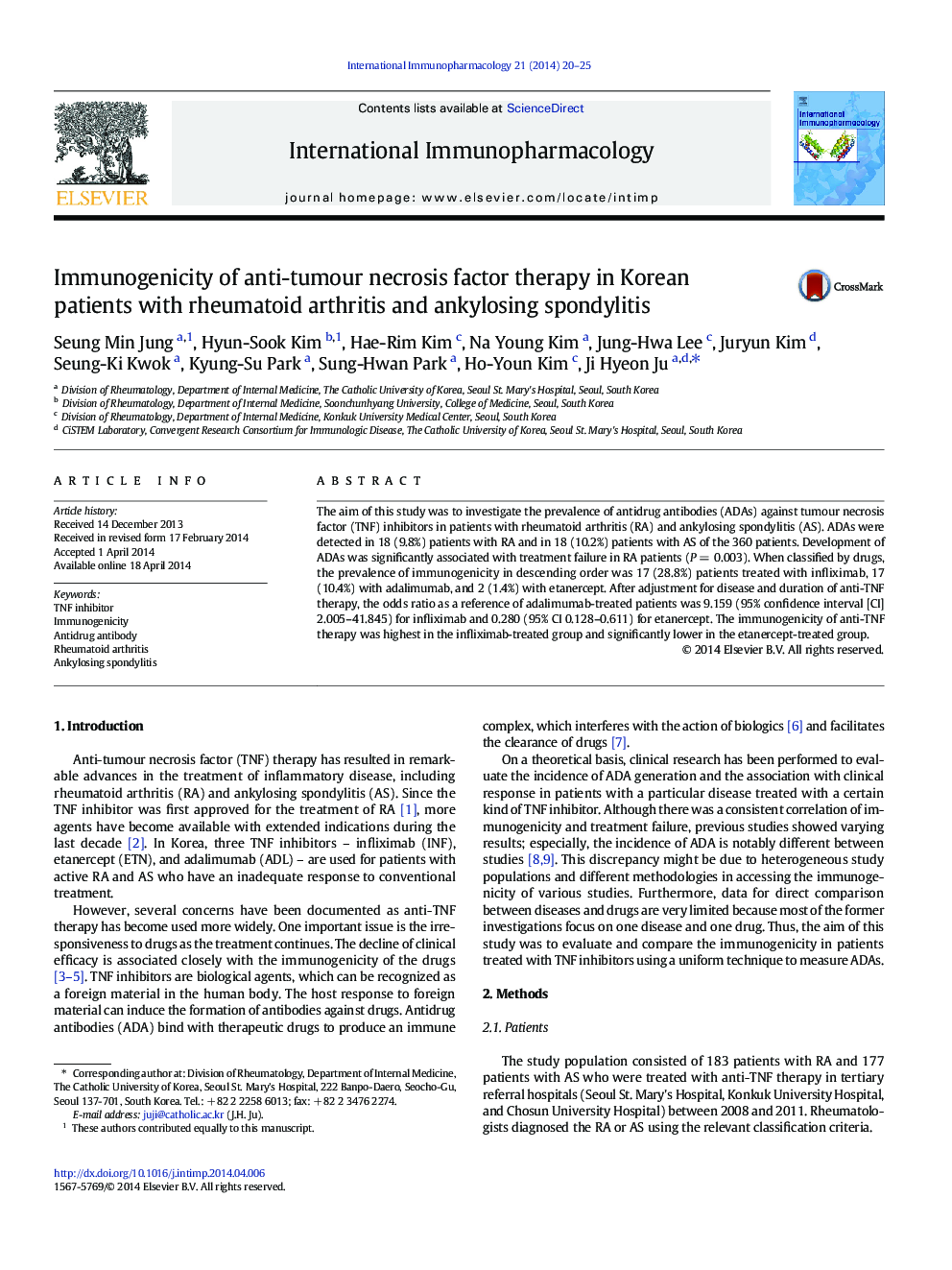| کد مقاله | کد نشریه | سال انتشار | مقاله انگلیسی | نسخه تمام متن |
|---|---|---|---|---|
| 5832626 | 1122606 | 2014 | 6 صفحه PDF | دانلود رایگان |
- Development of ADAs was significantly associated with treatment failure in RA patients.
- Patients with ADAs were more likely to discontinue TNF inhibitors irrespective of disease.
- The immunogenicity of anti-TNF therapy was highest in the infliximab-treated group and significantly lower in the etanercept-treated group.
- There was no significant difference in ADA formation between patients with RA and AS.
The aim of this study was to investigate the prevalence of antidrug antibodies (ADAs) against tumour necrosis factor (TNF) inhibitors in patients with rheumatoid arthritis (RA) and ankylosing spondylitis (AS). ADAs were detected in 18 (9.8%) patients with RA and in 18 (10.2%) patients with AS of the 360 patients. Development of ADAs was significantly associated with treatment failure in RA patients (PÂ =Â 0.003). When classified by drugs, the prevalence of immunogenicity in descending order was 17 (28.8%) patients treated with infliximab, 17 (10.4%) with adalimumab, and 2 (1.4%) with etanercept. After adjustment for disease and duration of anti-TNF therapy, the odds ratio as a reference of adalimumab-treated patients was 9.159 (95% confidence interval [CI] 2.005-41.845) for infliximab and 0.280 (95% CI 0.128-0.611) for etanercept. The immunogenicity of anti-TNF therapy was highest in the infliximab-treated group and significantly lower in the etanercept-treated group.
Journal: International Immunopharmacology - Volume 21, Issue 1, July 2014, Pages 20-25
